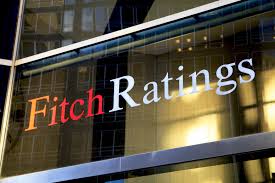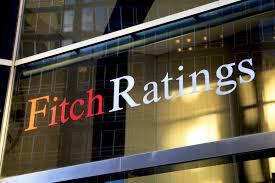
Rating agency Fitch reduced ratings for developers China Evergrande Group and Kaisa Group to "limited default" owing to non-payment of offshore bond dues, while a source claimed Kaisa had begun work on restructuring its $12 billion offshore debt.
Even though Evergrande and Kaisa have not formally declared their defaults, which might result in lengthy debt restructuring proceedings, the downgrades occurred on Thursday.
Fitch said Evergrande did not reply to its request for confirmation on the $82.5 million in coupon payments that were due last month, with the 30-day grace period ending this week.
"We are therefore assuming they were not paid," it said.
A restricted default, according to Fitch, occurs when an issuer has undergone a default or a distressed debt exchange but has not started winding-up steps like bankruptcy filings and is still operating.
The failure to pay has caused a "event of default" on Evergrande's bonds, which means its other U.S. dollar notes will become due and payable immediately if the bond trustee or holders of at least 25% of the total amount declare so, according to Fitch.
The same is true for Kaisa, which faces $2.8 billion in note maturities next year and $2.2-3.2 billion in maturities each year through 2023 and 2025, according to Refinitiv data.
Fitch said it has little information on Kaisa's restructuring plan after the company missed a $400 million payment on its offshore debts on Tuesday.
Evergrande has more than $300 billion in liabilities and is at the centre of China's property crisis. , said last week that it will proceed with a debt restructuring.
According to reports quoting sources, Kaisa is anticipated to sign a non-disclosure agreement (NDA) with Lazard, the bondholders' counsel, soon. Over a quarter of Kaisa's $12 billion offshore bonds are held by bondholders.
The NDA will serve as a foundation for future discussions on forbearance and financing options.
According to reports citing sources, formal conversations on forbearance and funding plans might begin once the NDA is in place. However, because the discussions are still in their early stages, a deal seems improbable in the next weeks, according to reports citing sources.
Kaisa said it was willing to discuss about forbearance but wouldn't go into specifics. Lazard did not respond to a request for comment.
Late Monday, a group of Kaisa offshore bondholders, who claim to control 50% of the notes due on Dec. 7, handed the business proposed conditions of forbearance. find out more
According to reports, the group previously pledged $2 billion in new loans to assist Kaisa settle its onshore and offshore obligations. Other funding options are also being considered.
According to reports, Kaisa is also in negotiations with another bondholder group.
Kaisa defaulted after failing to obtain the required 95 percent clearance from offshore investors last week to convert the bonds due Dec. 7 for new notes due June 6, 2023 at the same interest rate.
Trading in Kaisa's shares, which have lost 75% of their value this year, was stopped on Wednesday.
Evergrande's stock has dropped 88 percent this year as a result of the debt problem, which has fueled fears of a wider spread and spurred officials to reassure investors that the consequences can be handled.
In the medium term, the danger posed by a few Chinese real estate enterprises will not jeopardise Hong Kong's capital market, according to Chinese central bank governor Yi Gang.
(Source:www.usnews.com)
Even though Evergrande and Kaisa have not formally declared their defaults, which might result in lengthy debt restructuring proceedings, the downgrades occurred on Thursday.
Fitch said Evergrande did not reply to its request for confirmation on the $82.5 million in coupon payments that were due last month, with the 30-day grace period ending this week.
"We are therefore assuming they were not paid," it said.
A restricted default, according to Fitch, occurs when an issuer has undergone a default or a distressed debt exchange but has not started winding-up steps like bankruptcy filings and is still operating.
The failure to pay has caused a "event of default" on Evergrande's bonds, which means its other U.S. dollar notes will become due and payable immediately if the bond trustee or holders of at least 25% of the total amount declare so, according to Fitch.
The same is true for Kaisa, which faces $2.8 billion in note maturities next year and $2.2-3.2 billion in maturities each year through 2023 and 2025, according to Refinitiv data.
Fitch said it has little information on Kaisa's restructuring plan after the company missed a $400 million payment on its offshore debts on Tuesday.
Evergrande has more than $300 billion in liabilities and is at the centre of China's property crisis. , said last week that it will proceed with a debt restructuring.
According to reports quoting sources, Kaisa is anticipated to sign a non-disclosure agreement (NDA) with Lazard, the bondholders' counsel, soon. Over a quarter of Kaisa's $12 billion offshore bonds are held by bondholders.
The NDA will serve as a foundation for future discussions on forbearance and financing options.
According to reports citing sources, formal conversations on forbearance and funding plans might begin once the NDA is in place. However, because the discussions are still in their early stages, a deal seems improbable in the next weeks, according to reports citing sources.
Kaisa said it was willing to discuss about forbearance but wouldn't go into specifics. Lazard did not respond to a request for comment.
Late Monday, a group of Kaisa offshore bondholders, who claim to control 50% of the notes due on Dec. 7, handed the business proposed conditions of forbearance. find out more
According to reports, the group previously pledged $2 billion in new loans to assist Kaisa settle its onshore and offshore obligations. Other funding options are also being considered.
According to reports, Kaisa is also in negotiations with another bondholder group.
Kaisa defaulted after failing to obtain the required 95 percent clearance from offshore investors last week to convert the bonds due Dec. 7 for new notes due June 6, 2023 at the same interest rate.
Trading in Kaisa's shares, which have lost 75% of their value this year, was stopped on Wednesday.
Evergrande's stock has dropped 88 percent this year as a result of the debt problem, which has fueled fears of a wider spread and spurred officials to reassure investors that the consequences can be handled.
In the medium term, the danger posed by a few Chinese real estate enterprises will not jeopardise Hong Kong's capital market, according to Chinese central bank governor Yi Gang.
(Source:www.usnews.com)














